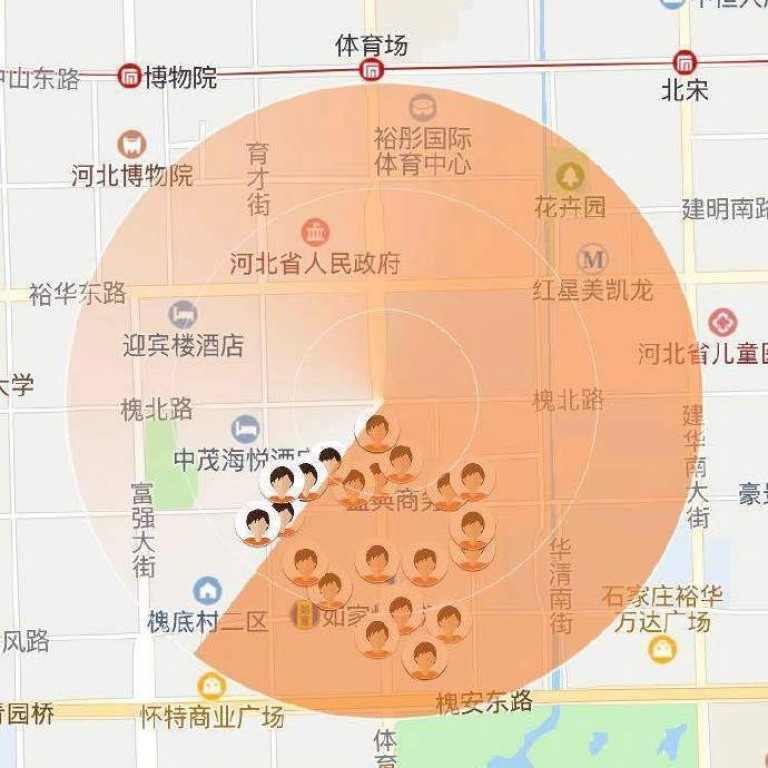
Is someone in debt nearby? Chinese court uses chat app to alert people as part of social credit system
- Map in WeChat mini-program developed by Hebei Higher Court identifies nearby debtors, while users can also report people to the court
- Chinese government’s expanding social credit system already prevents those with debts buying travel tickets and sending children to expensive schools
In a new addition to China’s data-driven social credit system, people in Hebei province, which surrounds Beijing, can check whether there are debtors near them with a swipe of their fingers.
The “Laolai Map” – laolai is a derogatory term for people who fail to pay back money – was announced by the Hebei Higher People’s Court last week. Developed by the court, the map can be found on a WeChat mini-program – a tiny application that runs on WeChat’s interface.
It pinpoints the user’s location and scans a radius of 500 metres (550 yards) for any laolai, including individuals, company employees and other organisations. The public can share the information as WeChat moments or with friends.
The public can also report any debtors online, according to a notice from the court. People can click on a person’s name and report any leads they may have to the court.
“The development and application of the map can further realise the connection and sharing of information on debtors and create a social honesty framework that limits those who lose their credibility in many ways,” the court said.
The Chinese government started developing the social credit system policy in 2011. It rates Chinese citizens, businesses and authorities, and affects everything from loan approvals to permission to board flights. The system is expected to be fully in place by 2020, but is already partially in operation.
Debtors face legal restrictions in certain activities, such as buying flight tickets, staying at resorts, and buying property. Their children also cannot go to expensive private schools.
According to a Supreme People’s Court website providing information to the public on debtors, more than 18 million people have so far been banned from flying and 5.5 million prevented from buying high-speed rail tickets as a result of their debts.
In June, the Chinese government publicly named 169 “severely discredited” people for misdemeanours such as failing to pay debts on time or behaving badly on flights. They were banned from buying train and plane tickets for a year.
A policy outline released by the State Council in 2014 said the social credit system would be applied in four areas: government affairs honesty, commercial honesty, societal honesty and judicial credibility.
Local media have also reported the establishment of city and provincial social credit systems. It is unclear whether and how these systems may be integrated with the national one.
Asked to comment, a spokesperson for Tencent, owner of WeChat, said: “We enable users to determine their privacy settings and ask for permission beforehand if we wish to access their location information. We also provide a clear explanation of how we use that information in our Privacy Policy.”

.jpg?itok=H5_PTCSf&v=1700020945)